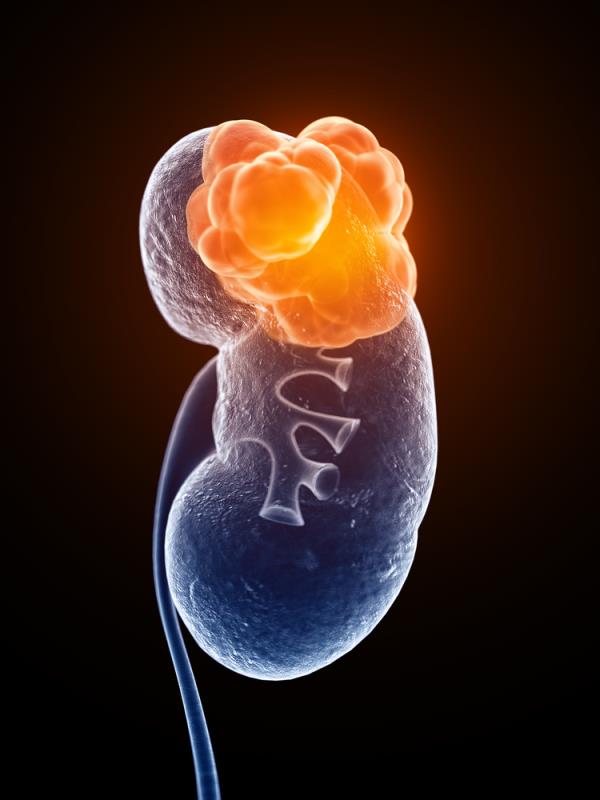
Recurrence rates of renal cell carcinoma (RCC) remain consistently high over the long-term, a recent study has found, suggesting that guideline-based surveillance should continue beyond 5 years.
Researchers conducted a posthoc analysis of the Eastern Cooperative Oncology Group–American College of Radiology Imaging Network (ECOG-ARIN) E2805 trial. This included 1,943 RCC patients who underwent surgical resection, and in whom the 36-month recurrence rate was evaluated.
A total of 1,508 patients were alive at the end of the study, with corresponding follow-up duration of 67.9 months. Recurrence of malignancy was reported in 730 patients.
At 0 months after surgery, researchers calculated the 36-month cumulative recurrence rate of RCC to be 31.1 percent. This cumulative rate dropped to 26.0 percent for those who were not positive for recurrence 12 months from surgery, and to 18.8 percent, 16.1 percent, 18.9 percent and 20.3 percent in patients who were free of recurrence at 24, 36, 48 and 60 months, respectively.
Multivariable analysis found that age, pathological T3/4 stage, pathological N1/2 stage, and Fuhrman grades 3 and 4 were significant and independent predictors of RCC recurrence at 0 months after surgery. None predicted long-term recurrence.
“Our findings demonstrate that the major drop in recurrence occurs when the patient has had 2 years of recurrence-free status following surgery. After which, the risk remains virtually stable, even 5 years from surgery,” said researchers.
This suggests that recurrence estimates immediately after surgery are inapplicable in the long-run and reflects a need for continued surveillance, they added.